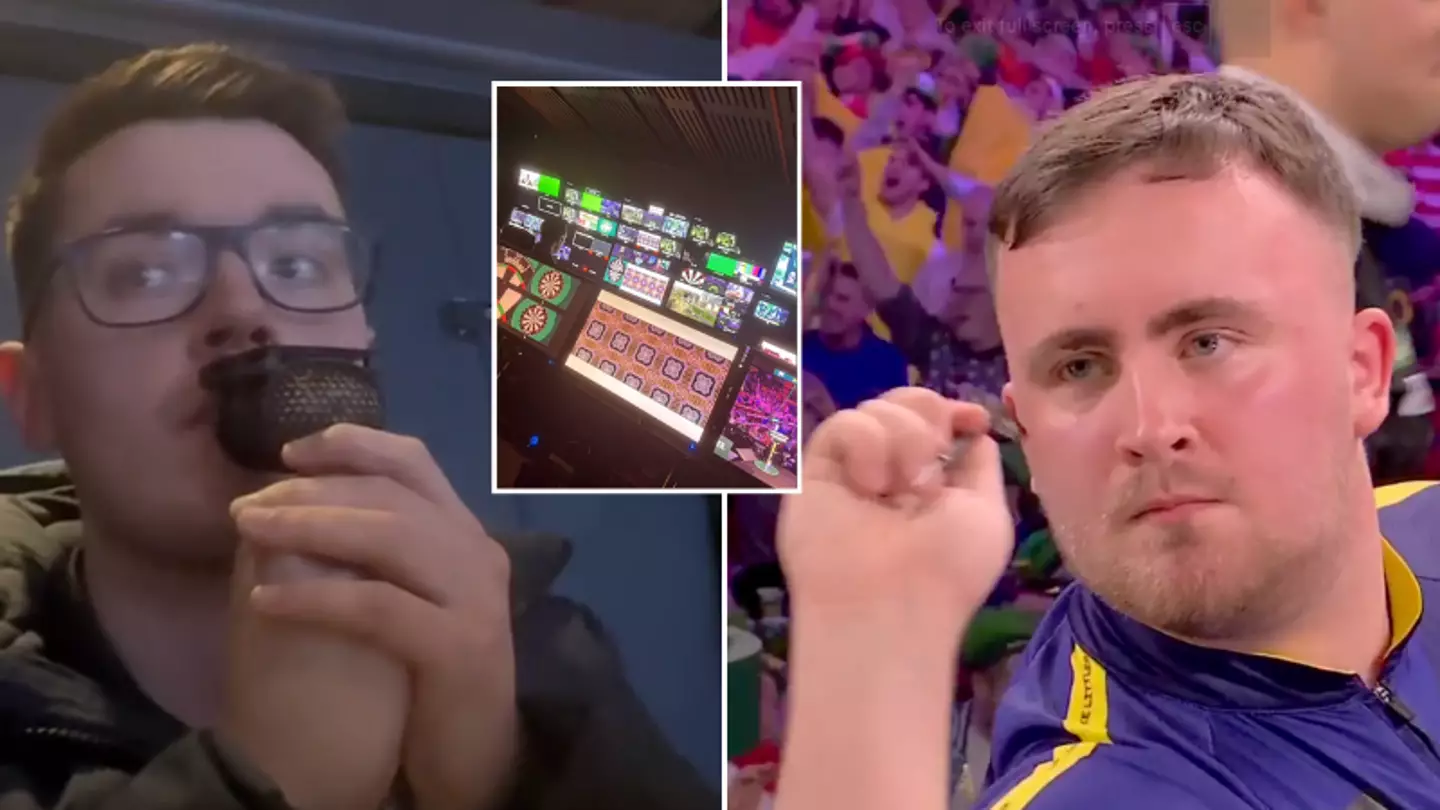
It has been a much-talked-about topic this winter. How do the Sky Sports cameras know exactly where the arrow will be thrown on the dartboard?
If you're ever asked this question then don't worry; you're not alone.
In the past, some have suggested the footage is on a slight delay, which gives them time to choose the angle. That theory, however, is false. The person responsible has a job title.
The 'spotter' is one of the most important aspects behind a game of darts. Basically, spotting involves prompting the television cameras where the next dart will land – and it's not an easy task.
Advert
Owen Binks, who has been working as a spotter at this year's World Darts Championship, has given fans a behind-the-scenes look at his role via TikTok. You can check out the full video below.
Speaking in an interview with Het Nieuwsblad, Binks gave a further insight into the job.
"Even many darts fans have no idea my job exists," he said. "Whether I can describe it in two sentences? A 'darts spotter' works in the production room with the director and says what the cameras should focus on during each throw.
"We give the instructions and everyone else has to listen. TV directors often have no idea what darts is about, so they follow what we say. So we have some power, but we are also under a lot of pressure. Because you are responsible."
"I can say it's a tough job," Binks continued. "It's certainly a lot harder than being a referee. Then you have the answer right in front of you and usually a few seconds to think about it. Then it's mostly good math.
"But as a spotter I have to think faster than the darters themselves, in other words I have to think ahead. This is then based on habit of a player, my experience or the standard routes you know, but also on, for example, the eyes.
"You can often see from that where they are going to throw. But even then it is not simple. We often have people who try it because they want to become one, but they quickly realize that it is not their thing.
"We've also had players pass, world-class players, but then they often passed on what they themselves would do instead of what the player would do on camera. That, of course, is something completely different."
Keith Deller, a former BDO World champion and well-known 'spotter', also opened up about the job in an interview with The Star.
“When you see the player needing, say, 106, ‘I’ll go treble 20, single 14, double 16’ so I’ll tell the remote cameras, the director, where I think they’re going to go,” said Deller.
“I think I’ve been the longest spotters there’s ever been. I’m there at all the big tournaments, I feel the atmosphere, it’s great. It’s a tough job to do. No disrespect to the commentators but they can say they’ll go one way and, if they don’t, it doesn’t really matter to them because they’re not the one telling the camera where to go.
"You really have to be alert all the time when you’ve got the likes of Jonny Clayton, who decides to go his own ways. I love doing it and Sky are a brilliant team. It keeps me sharp.”
Deller added: “It’s all the different combinations. The most important thing is not to panic. When you’ve got the likes of Michael Smith, who throws very quick, you’ve really got to be on your mettle.
“For instance, if someone wants 25, it’s nine, double eight for quite a few of them. But you’ve got to think ‘what happens if they hit a 12?’ You’ve got to keep an eye out in case they go either side because, when they’re quick, you haven’t got the time to do it.”
Topics: Darts, Luke Littler